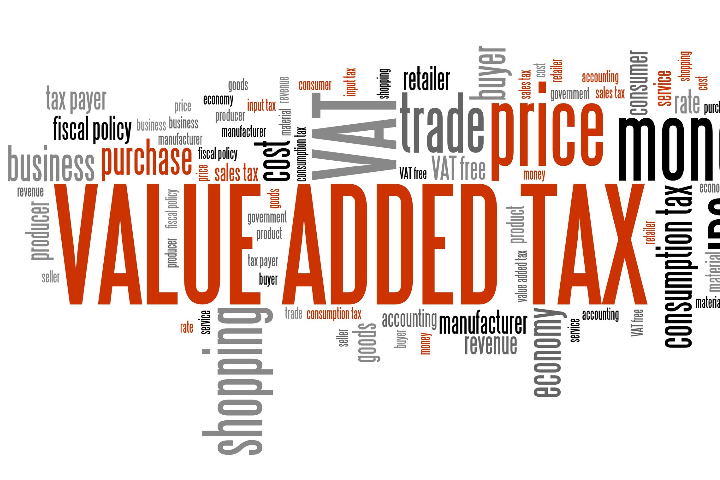Qatar is said to be one of the wealthiest countries in the world due to its dependency on oil and gas revenues to fuel its economy. Hence, to diversify its revenue sources and reduce its reliance on hydrocarbons, the government has taken initiatives to introduce Value Added tax in Qatar in order to generate additional income for itself.
Value-added tax, also known as consumption tax, is an indirect form of tax added to the value of goods and services at each stage of the supply chain. The end consumer is the ultimate bearer of VAT in this chain. With the implementation of VAT in Qatar, the government aims to modernize the tax system of the nation and align it with international standards.
In this blog, we will understand the status of VAT in Qatar, the key dates of implementation as well as the requirements for compliance.
Value Added tax in Qatar
The Gulf Cooperation Council (GCC) signed a GCC VAT Framework Agreement in the year 2016 with the intention to establish a unified VAT system across its members – Bahrain, Kuwait, Oman, Qatar, Saudi Arabia, and the United Arab Emirates. The primary objective of this agreement is to integrate tax policies within the region, encourage trade, and diversify revenue sources. Moreover, it aims to form an economical and unified market by implementing a common VAT system.
As of now, there is no sales tax or VAT in Qatar. However, the country is committed to aligning with the GCC VAT Framework Agreement and implementing Value Added tax in Qatar soon. The anticipated VAT rate is 5%, the standard rate adopted by other GCC members.
Significance of VAT in Economy
VAT plays a pivotal role in the global economy. Being a major source of income for governments, it enables them to fund public welfare services and infrastructure projects. Through VAT, the tax burden is distributed among consumers based on their consumption patterns. This approach not only promotes economic equality but also creates a progressive tax system where individuals consuming more will have to pay more taxes.
In addition, VAT helps maintain the financial stability of the country by facilitating a stable flow of income for governments, especially during recessions.
Functioning of Value-Added Tax
As the name itself states, Value Added Tax is a tax added to the value of the product at each stage of the supply chain, starting from the production to the final sale of the finished product. In the beginning, the manufacturer makes a product and adds value to it. VAT is then applied to the cost of the material. The product is then sold to the retailer charging VAT on the full price. The retailer further charges VAT on the full price of the product and sells it to the customer.
As per the law, the manufacturer can claim back the VAT paid on the materials purchased for the production of the product, and the retailer can claim back the VAT paid to the manufacturer while purchasing the product from them. Thus, the actual tax burden falls on the final consumer who cannot claim back VAT and hence, has to bear the full tax charged.
Announcement of Value Added Tax in Qatar
According to Sheikh Mohammed bin Abdulrahman bin Jassim Al Thani, Prime Minister of Qatar, no specific date has been fixed for the implementation of VAT in the country. Though it has been progressing plans to introduce the VAT regime, inflation concerns are leading to delays in its implementation.
Types of VAT supplies in Qatar
VAT supplies can be categorized into three groups:-
- Standard-rated supplies – These goods and services are subject to the standard VAT rate, which is 5%. These supplies cover most consumer goods and services.
- Zero-rated supplies – The tax rate applied to these supplies is 0%. For example, international exports and certain designated goods or services.
- Exempt supplies – No VAT is charged on these supplies. For example, education, healthcare, and certain financial services.
Place of supply for VAT in Qatar
Qatar’s VAT rules will be applied to a transaction based on the place of supply. It is generally as follows:
- Local supplies – When the goods are sold in Qatar, VAT rules will be applied to that transaction.
- Supplies between GCC – When the supplies are between GCC countries, the VAT rule of the country where the supplies are consumed will be applied. This means a reverse charge mechanism will be applied to Intra-GCC supplies.
- Supplies received from outside the GCC – When supplies are imported into Qatar from outside the GCC, the Qatari VAT will be applied to the import.
Implications of Value Added Tax in Qatar
Here are some potential implications of VAT in Qatar: –
- The increased cost of supplies – The implementation of VAT is believed to slightly increase the prices of goods and services as the VAT is passed on to the consumers by businesses.
- Impact on businesses – Businesses will be required to update their accounting systems and procedures to comply with VAT regulations. They may also need to install new software or hire more staff to handle VAT-related responsibilities.
- Government income – As VAT serves as a significant source of revenue for the Qatari government, it can be used for public development services and infrastructure projects.
- Economic growth – Through VAT, the government can encourage businesses to invest and innovate for economic growth.
Tips to ensure compliance with Value Added Tax in Qatar
Businesses in Qatar need to adhere to some key requirements in order to ensure compliance with the VAT system:-
Understand VAT regulations –
Businesses must familiarize themselves with the specific VAT regulations in Qatar, including VAT registration threshold, filing requirements, and record-keeping responsibilities.
VAT registration –
Businesses that meet the VT registration threshold must register with the Qatari tax authorities by providing the necessary documentation and information required for the process.
Maintain accurate records –
Businesses must maintain detailed records of all VAT-related transactions including invoices, receipts, credit notes, and other supporting documents.
VAT calculation –
Businesses need to learn the methods of VAT calculation on sales and purchases and the application of input tax credits.
File VAT returns –
Filing VAT returns within the prescribed deadlines is an imperative task for businesses. They are required to provide accurate information about sales, purchases, and other VAT liabilities.
Regular tax audits –
Businesses must ensure to review their VAT compliance from time to time in order to detect any potential issues or errors. They can either conduct internal audits or hire external auditors to assess their compliance.
Seek professional help from Shuraa Tax
Thus, understanding Value Added tax in Qatar is crucial for both businesses as well as consumers. As Qatar is considering bringing this tax into effect, it’s essential to stay aware of possible changes, the rates, the taxable supplies, and exceptions. Moreover, businesses must prepare themselves by modifying their accounting systems and training their staff about VAT. In addition, consumers must also be aware of the functioning of VAT and how it can affect their everyday purchases.
On the whole, VAT is a complex system. Therefore, businesses need to stay up to date on the latest information in order to ensure compliance with the VAT regulations. Shuraa Tax Consultants and Accountants is a group of experienced and qualified accountants, auditors, and tax advisors dedicated to assisting clients with their taxation needs in the Middle East. With their comprehensive guidance on VAT compliance, tax planning, and other tax-related matters, you can understand the complexities of tax laws and meet all your tax obligations effectively.




